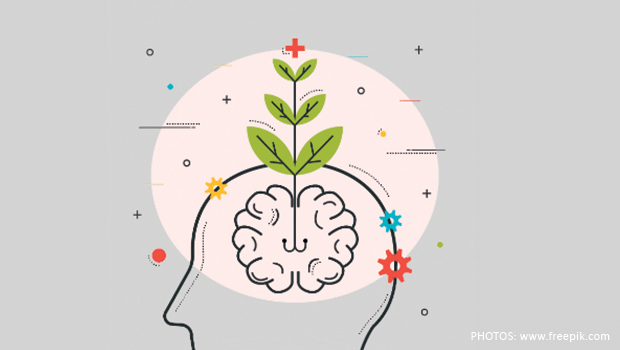
When psychologist Dr Soon Siew Peng got her first job in Melbourne, Australia, all she wanted was to do her best and prove her worth. When everyone else left the office at 5pm, she stayed on to clear emails and finish up clinical notes.
Yet at appraisal, Dr Soon’s manager ranked her “poor” in time management and organisation. And she was made to leave work on the dot from there on out.
And on a separate occasion when Dr Soon was particularly stressed out, a senior colleague advised her to take a “mental health day off”, an idea she agreed to reluctantly.
Both times, Dr Soon, now a senior clinical psychologist at Changi General Hospital, was floored.
But through these interventions, she personally experienced the importance of self-care in preventing burnout, a common condition among healthcare professionals.
According to statistics shared by Dr Soon at the SingHealth Duke-NUS Education Conference 2019, a third of nurses in a local community hospital and over 80 per cent of residents in Singapore were found to experience burnout.
“As a country and as a culture, we are really dreadful at self-care!” Dr Soon’s dramatic statement drew laughs during her lecture titled “Flourishing Lives: Preventing Burnout Using Self-Care”. But she quickly got serious.
“In Asia, we struggle to say no. But it’s important to be assertive and ask for help so that we don’t overextend ourselves,” she stressed.
Know the signs
While burnout presents itself in many ways, common symptoms include emotional and physical exhaustion (think fatigue, insomnia, poor appetite, anxiety and poor physical health), lack of a sense of accomplishment (feeling hopeless, helpless and ineffective) and cynicism and depersonalisation (losing enjoyment and enthusiasm at work, having a negative outlook and feeling detached).
The good news is that burnout (along with all its negative effects on the brain) can be reversed with the proper measures, shared Dr Soon.
Before you start popping a bottle of wine or going on a shopping spree, know that self-care isn’t the same as indulgence. It is, in fact, instilling a set of healthy habits (such as eating and sleeping well, exercising, staying connected to trusted colleagues and setting boundaries between work and personal life) that will rejuvenate you sustainably.
But even if you are feeling fine right now, it doesn’t mean you shouldn’t be making any tweaks to your life.
“If you drive a car, you can’t top up the fuel when you feel like it. You have to plan and do it in advance so that your car can keep going. It is the same for self-care,” said Dr Soon.
Self-care in practice: Using positive psychology and self-compassionGoing deeper, Dr Soon shared some useful activities that anyone can do to increase personal well-being. Each item takes just minutes and can be done anywhere. 1. List three good things Why: The idea is to train your brain to focus on the good instead of just the bad, as our brains are naturally biased to focus on danger, threat, and negative events. Studies have found that people who keep a gratitude journal have more determination, motivation, optimism and energy. This leads to more exercise hours per week, fewer physical illnesses, and better sleep even up to six months after they stop the journal. 2. Savour Why: Research shows that as people savour more, positive emotions such as contentment, pride, calmness and confidence increase. And people who have more positive emotions have been found to live longer lives and be less susceptible to infectious diseases. Positive emotions also strengthen relationships when experienced together with others, increase creativity and curiosity, and help you bounce back more quickly from negative experiences. 3. Write a gratitude letter Why: There’s evidence that expressing gratitude activates the oxytocin system, which is associated with bonding. This leads to stronger connections with others, which in turn leads to better physical and mental health, longevity and less age-related disabilities. 4. Take a self-compassion break Why: Self-compassion results in intrinsic motivation to improve and to do your best. It also leads to healthier lifestyle habits and less depression, stress and anxiety. |
*Give yourself a recharge by joining the weekly mindfulness hour organised by SingHealth Academy and SingHealth Duke-NUS Institute for Patient Safety & Quality. It takes place every Wednesday from 12pm to 1pm and is opened to SingHealth staff. Email ipsqworkshop@singhealth.com.sg for more details.
References:
Tay, W.Y., Earnest, A., Tan, S.Y., & Ng, M.J.M . (2014). Prevalence of burnout among nurses in a community hospital in Singapore: A cross-sectional study, Proceedings of Singapore Healthcare, 23, 93-99.
Lee, P. T., Loh, J., Sng, G., Tung, J., & Yeo, K. K. (2018). Empathy and burnout: A study on residents from a Singapore Institution, Singapore Medical Journal, 59, 50-54.
Seligman, M. (2011) Flourish: a visionary new understanding of happiness and well-being. New York, NY: Free Press.
Neff, K. (2015). Self-compassion: the proven power of being kind to yourself. New York, NY: William Morrow & Company.













 Get it on Google Play
Get it on Google Play